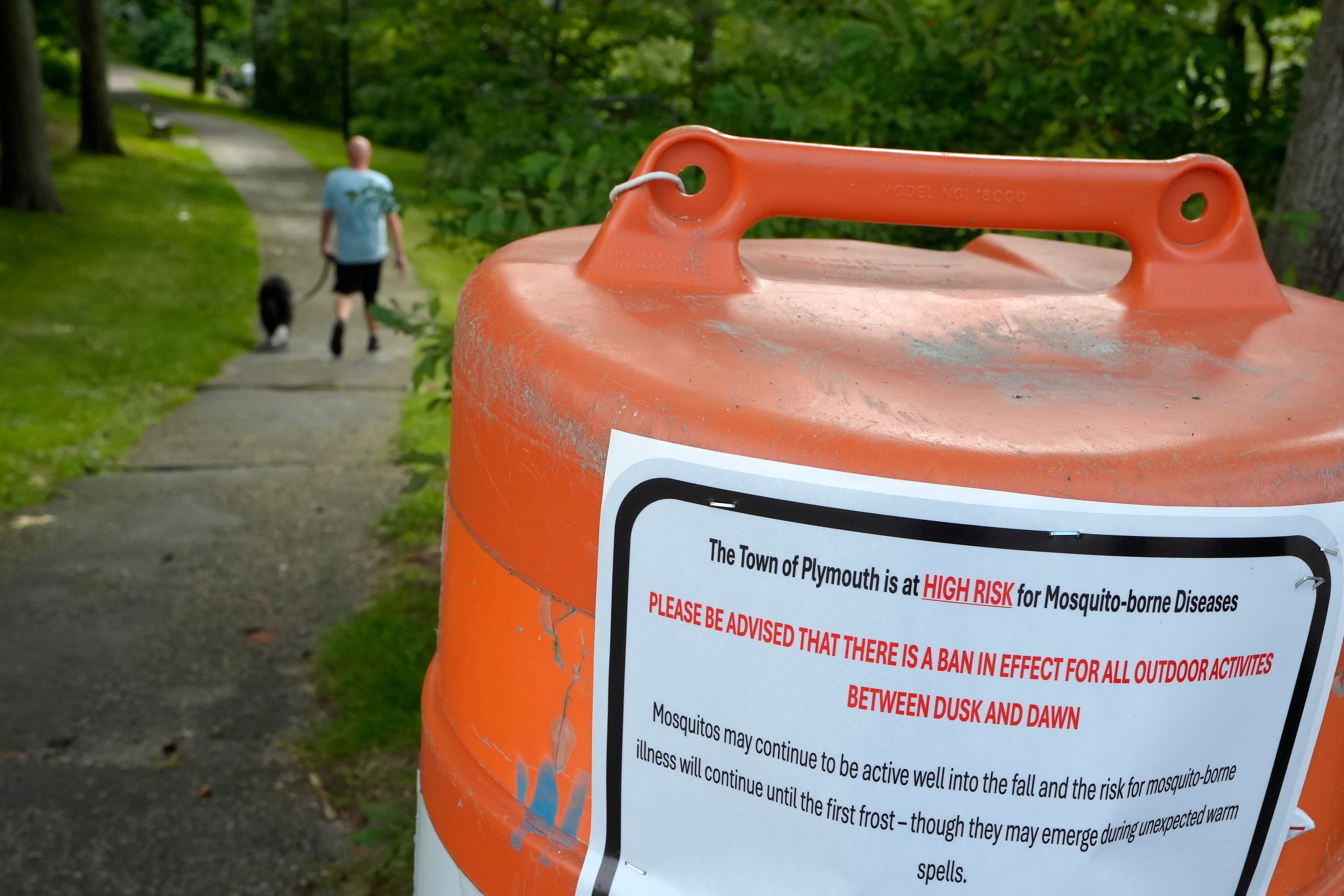Massachusetts health officials report second case of potentially deadly mosquito-borne virus
Massachusetts health officials have announced a second confirmed case of the mosquito-borne eastern equine encephalitis virus in the state

Your support helps us to tell the story
From reproductive rights to climate change to Big Tech, The Independent is on the ground when the story is developing. Whether it's investigating the financials of Elon Musk's pro-Trump PAC or producing our latest documentary, 'The A Word', which shines a light on the American women fighting for reproductive rights, we know how important it is to parse out the facts from the messaging.
At such a critical moment in US history, we need reporters on the ground. Your donation allows us to keep sending journalists to speak to both sides of the story.
The Independent is trusted by Americans across the entire political spectrum. And unlike many other quality news outlets, we choose not to lock Americans out of our reporting and analysis with paywalls. We believe quality journalism should be available to everyone, paid for by those who can afford it.
Your support makes all the difference.Massachusetts health officials on Thursday announced a second confirmed case of the mosquito-borne eastern equine encephalitis virus in the state.
A second case of the virus in a horse was also confirmed.
The human case is a woman in her 30s. Both were exposed in the area of Plymouth County that was aerial-sprayed Tuesday night. Both became infected before spraying was performed.
The detection of the latest case comes after a New Hampshire resident infected with the virus died, state health authorities said Tuesday.
The Hampstead resident’s infection was the first in the state in a decade, the New Hampshire Department of Health and Human Services said. The resident, whom the department only identified as an adult, had been hospitalized because of severe central nervous system symptoms
Eastern equine encephalitis is a rare but serious and potentially fatal disease that can affect people of all ages and is generally spread to humans through the bite of an infected mosquito. The first Massachusetts resident infected with the EEE virus this year was a male in his 80s exposed in southern Worcester County.
Massachusetts Public Health Commissioner Robbie Goldstein said people should take steps to prevent mosquito bites.
“We expect that the aerial spraying will help prevent risk for EEE from continuing to escalate in the area, but it does not eliminate it completely," he said.
About a third of people who develop encephalitis from the virus die from the infection, and survivors can suffer lifelong mental and physical disabilities.
There is no vaccine or antiviral treatment available for infections, which can cause flu-like symptoms and lead to severe neurological disease along with inflammation of the brain and membranes around the spinal cord.
There have been 76 EEE-positive mosquito samples detected so far this year in Massachusetts.
Officials in some Massachusetts towns have urged people to avoid going outdoors at night this summer because of concerns over the virus.
A 2019 outbreak included six deaths among 12 confirmed cases in Massachusetts, and the outbreak continued the following year with five more cases and another death. Two of three people infected in New Hampshire in 2014 died.